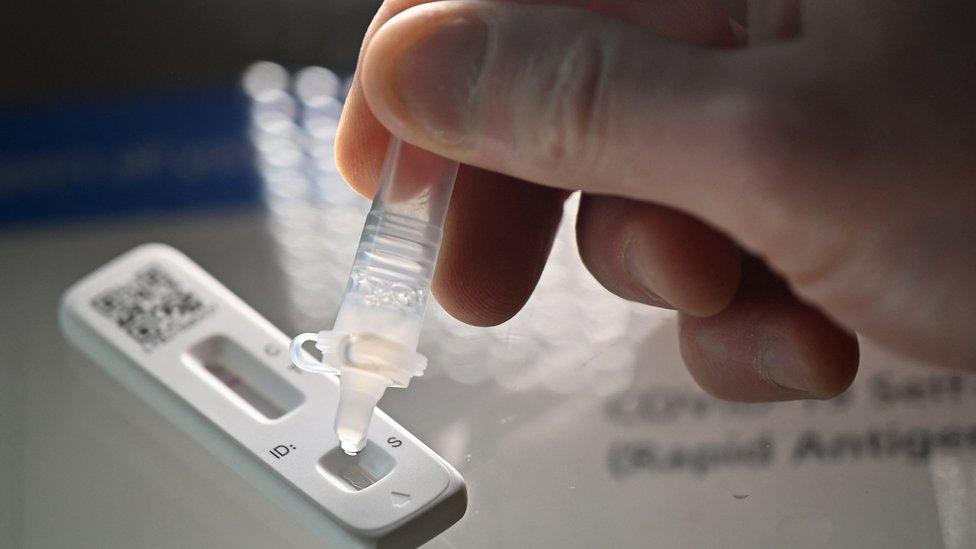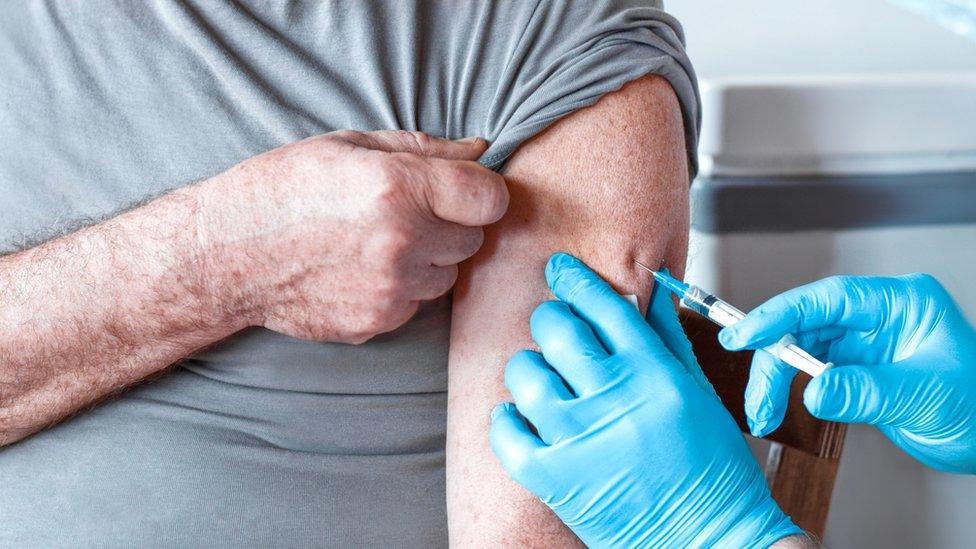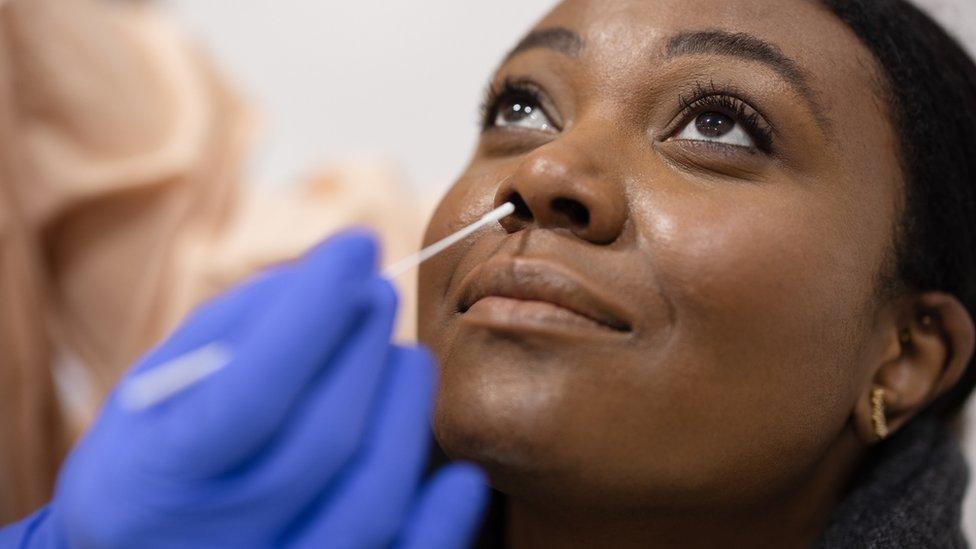Covid testing scaled back further in England
- Published

Covid testing is being scaled back even further in England from April.
It is part of the "living with Covid" approach that relies on vaccines to keep people safe.
Most staff and patients in hospitals and care homes will no longer be given swab tests, even if they have symptoms.
Some will though, such as staff working with severely immunocompromised patients or if there is an outbreak on a ward or in a hospice or prison, for example.
The long-running Office for National Statistics Covid infection survey, external that estimated how many people in the community had the virus each week - based on nose and throat swabs from volunteers - has already come to an end.
The final one suggested 1.7 million people - about one out of every 35 (2.7%) - had Covid in the week ending 13 March, a14% rise on the previous week.
But the UK Health Security Agency says thanks to the continuing success of the vaccination programme, testing in England can now become more like the approach used for other common respiratory infections such as flu.
Although, it can quickly be scaled up again if another big wave of Covid, or a new variant, starts putting pressure on the NHS.
And scientists will keep checking some of the swabs tests that are given, to see how the virus is mutating and whether there are fresh concerns.
The testing that is ending includes:
routine asymptomatic testing for staff and patients being admitted to all health and social-care settings, including hospitals and care homes (most of this testing paused in August 2022 anyway)
routine symptomatic testing of staff and residents in care settings
routine symptomatic testing in prisons, places of detention and homelessness, refuge and asylum settings
polymerase chain-reaction (PCR) testing outside NHS settings
Lateral-flow tests will continue for:
people in the community and residents in care or other high-risk settings who have symptoms and are eligible for Covid treatment, to enable rapid access to these drugs
some NHS staff who have symptoms and work on wards with severely immunosuppressed patients
hospice staff with symptoms
all patients being discharged from hospitals into care settings
outbreak testing in the NHS, hospices, prisons, places of detention and care, homelessness, refuge and asylum settings
some hospital patients with symptoms, where needed to inform decisions such as ward transfers
UKHSA chief executive Dr Dame Jenny Harries said: "Fewer people now experience severe illness due to Covid - due to vaccinations, infection-related immunity and treatments for those who need them - and the risk of hospitalisation has decreased overall.
"This means we are now able to further bring our testing programmes in line with management of other viral infections whilst still maintaining focus on those at highest risk, to protect them from the virus.
"Covid and other respiratory illnesses haven't gone away - and simple actions like washing your hands and staying at home and avoiding vulnerable people when unwell can make a big difference.
"For those at highest risk of severe illness, the spring booster programme also provides an opportunity to keep immunity topped up."
Health and Social Care Secretary Steve Barclay said: "Testing was crucial to our response during the height of the pandemic - and our successful vaccination programme has protected the most vulnerable, saved thousands of lives and has helped us all to live with Covid.
"Thankfully, we are now able to scale back our testing programme while remaining committed to ensuring those at highest risk and more prone to severe illness get the protection they need."
Related topics
- Published7 March 2023

- Published10 January 2023
